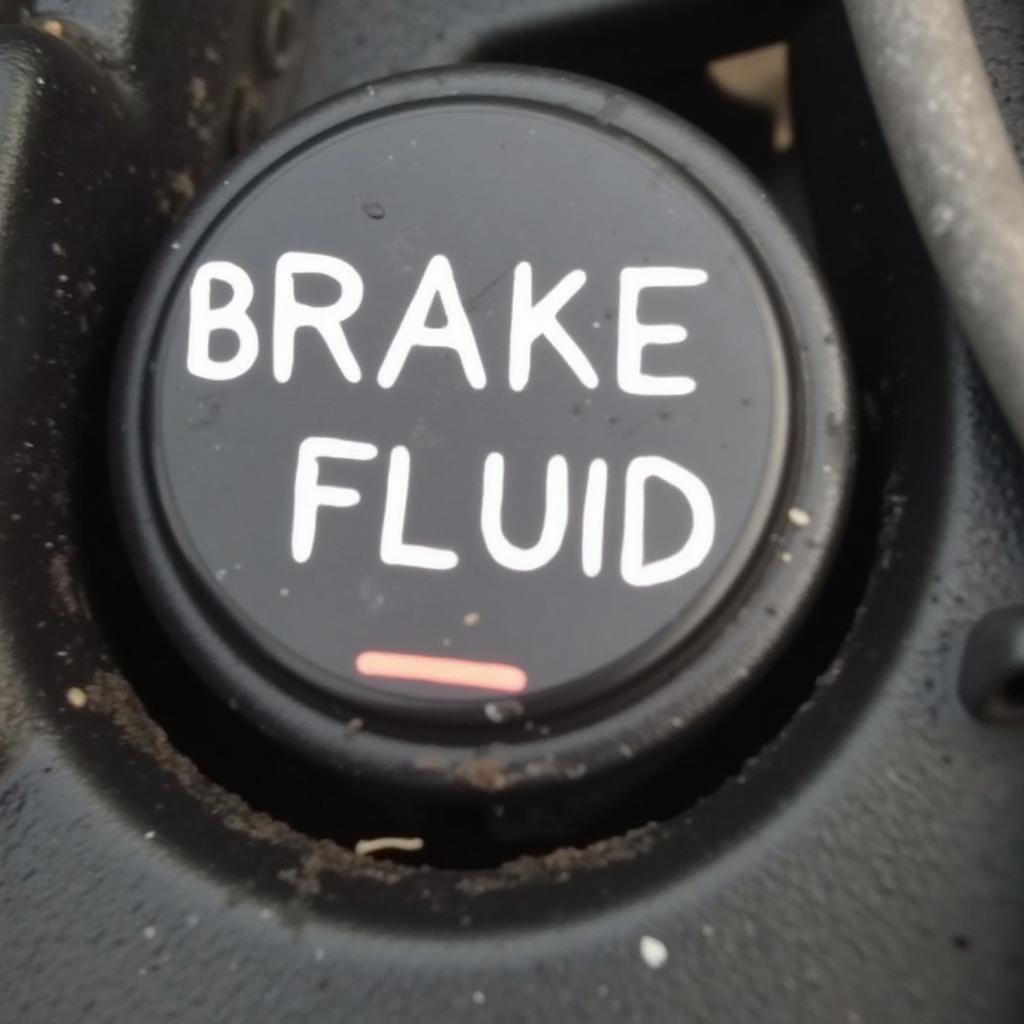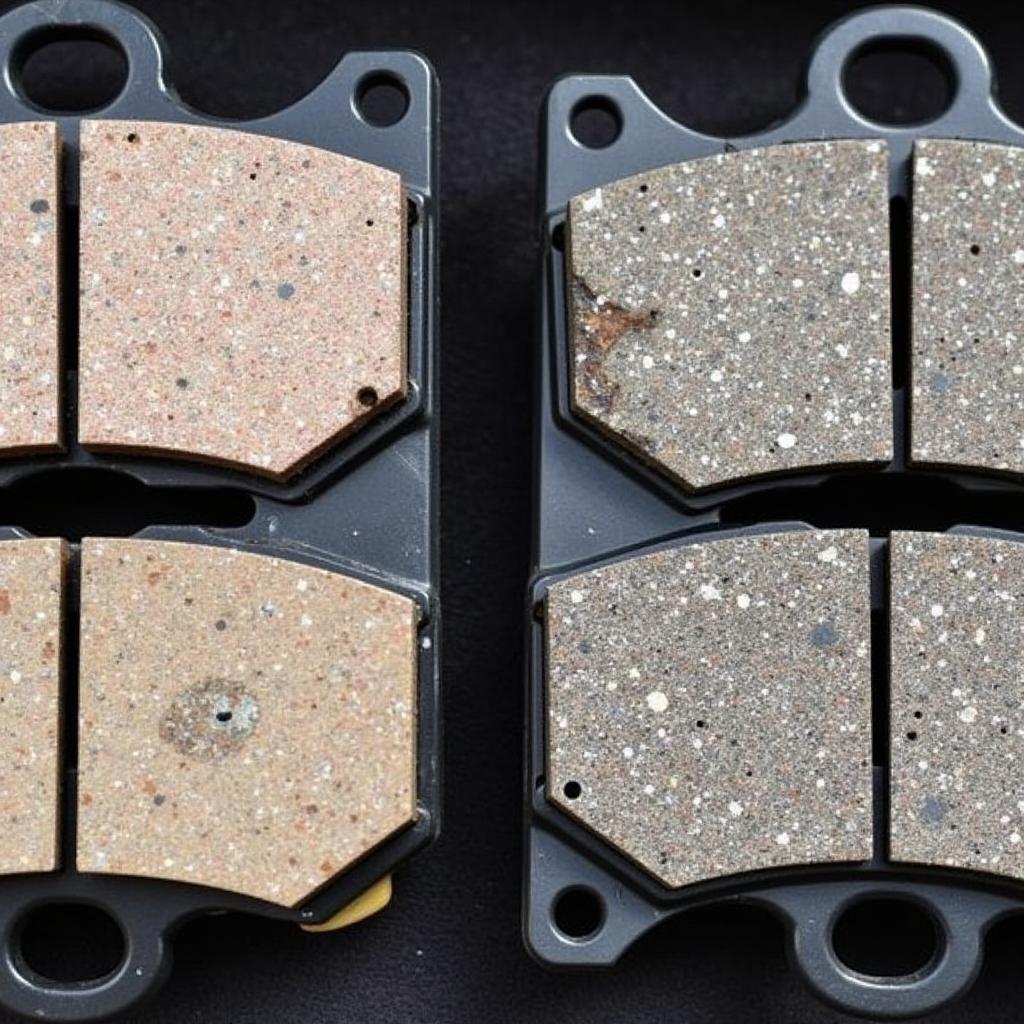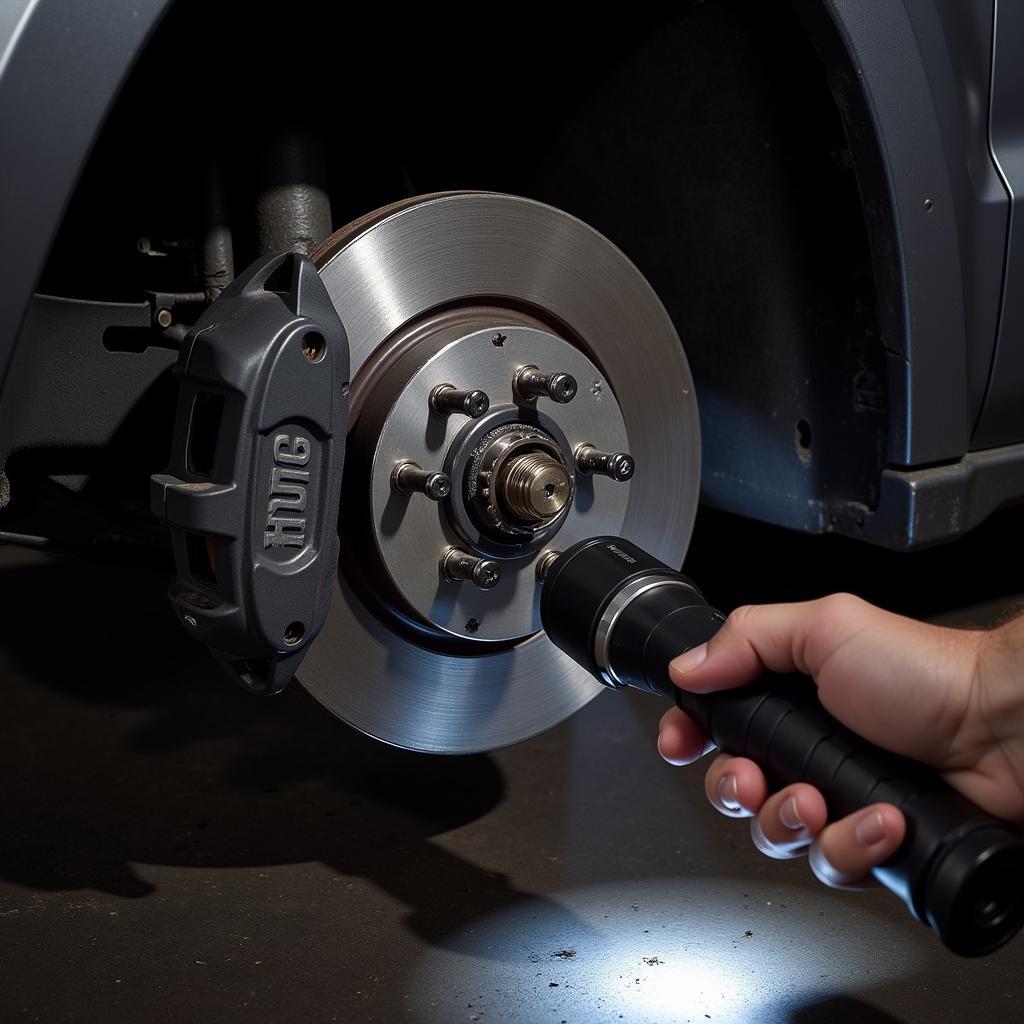The brake warning light on your dashboard is a crucial safety feature. When it illuminates on your 2002 Jeep Grand Cherokee, it signals a potential problem within your braking system that requires immediate attention. Ignoring this warning could lead to decreased braking performance and potentially dangerous situations on the road. This comprehensive guide will explore the common causes of a brake warning light on a 2002 Jeep Grand Cherokee and provide insights into diagnosing and resolving the issue.
Common Causes of a Brake Warning Light
Several factors can trigger the brake warning light on your 2002 Jeep Grand Cherokee. Here are some of the most prevalent culprits:
- Low Brake Fluid: One of the most common reasons for the warning light is low brake fluid. Brake fluid is essential for transmitting the force from your foot on the brake pedal to the wheels, enabling your vehicle to stop. A leak in the brake lines, hoses, or calipers can cause the fluid level to drop, triggering the warning light.
 Low Brake Fluid Level
Low Brake Fluid Level
- Worn Brake Pads: Brake pads are designed to wear down over time. When they become excessively thin, a sensor within the brake pad assembly comes into contact with the brake rotor, completing a circuit that illuminates the brake warning light. This mechanism serves as a reminder to replace your brake pads before they wear down completely and compromise your braking ability.
 Worn Brake Pads
Worn Brake Pads
-
Faulty Brake Caliper: The brake calipers house the brake pads and pistons that clamp the pads against the rotors to stop the vehicle. A sticking or seized caliper piston can prevent the brakes from releasing properly, leading to continuous friction and heat generation. This excessive heat can trigger the brake warning light.
-
ABS Issue: Your 2002 Jeep Grand Cherokee is equipped with an Anti-lock Braking System (ABS). If the ABS module detects a malfunction within the system, it can illuminate the brake warning light. This could be due to a faulty wheel speed sensor, a problem with the ABS control module, or issues with the wiring harness.
-
Parking Brake Engaged: While seemingly obvious, it’s easy to overlook. If the parking brake is even slightly engaged, it can trigger the brake warning light. Ensure the parking brake is fully released before suspecting more serious issues.
Diagnosing the Problem
Identifying the specific cause of the brake warning light requires some investigation. Here’s a step-by-step guide:
-
Check the Parking Brake: As a preliminary step, make sure the parking brake is fully disengaged.
-
Inspect Brake Fluid Level: Park your vehicle on a level surface and open the hood. Locate the brake fluid reservoir, typically situated near the firewall on the driver’s side. Check the fluid level; if it’s below the “MIN” mark, add brake fluid to the “MAX” line using the appropriate DOT specification for your Jeep Grand Cherokee.
-
Visual Inspection: If the brake fluid level is low, visually inspect the brake lines, hoses, and calipers for any signs of leaks. Look for wet spots, drips, or corrosion around the brake components.
 Detecting Brake Fluid Leaks
Detecting Brake Fluid Leaks
- Consult a Professional: If you’re unable to identify the issue or suspect a more complex problem like a faulty ABS system, it’s best to consult a qualified mechanic specializing in Jeep vehicles.
Addressing Brake Warning Light Issues
Addressing the underlying cause is crucial once you’ve diagnosed the problem:
-
Low Brake Fluid: If a leak is detected, immediate repair is necessary. Replace worn brake lines, hoses, or calipers as needed. After refilling the brake fluid, bleed the brake system to remove any air bubbles.
-
Worn Brake Pads: Replace worn brake pads promptly to ensure optimal braking performance and prevent damage to the rotors. It’s generally recommended to replace both pads on the same axle simultaneously.
-
Faulty Brake Caliper: A sticking or seized brake caliper will require attention. You can attempt to rebuild the caliper using a caliper rebuild kit, but replacement is often the more reliable solution, especially if the caliper is severely corroded or damaged.
-
ABS Problems: Diagnosing and repairing ABS issues typically necessitate specialized tools and expertise. A qualified mechanic can retrieve trouble codes from the ABS module to pinpoint the exact problem and recommend the appropriate course of action, whether it involves replacing a faulty sensor or repairing wiring issues.
Preventative Maintenance
Regular brake system maintenance is essential for safety and preventing unexpected issues:
-
Regular Brake Fluid Flushes: Brake fluid is hygroscopic, meaning it absorbs moisture over time. This moisture contamination can reduce braking performance and lead to corrosion within the brake system. Consult your owner’s manual for the recommended brake fluid flush intervals.
-
Brake Inspections: During routine maintenance, have a mechanic inspect your brake system for wear and tear. They can check the condition of your brake pads, rotors, calipers, and brake lines, ensuring everything is in good working order.
Conclusion
The brake warning light on your 2002 Jeep Grand Cherokee is a critical safety indicator that should never be ignored. By understanding the common causes, following a systematic diagnostic approach, and addressing the underlying issues promptly, you can help ensure the reliability and safety of your vehicle’s braking system. Remember, regular maintenance and timely repairs are crucial for preventing more serious and costly problems down the road. If you’re ever in doubt about the condition of your brakes, consult a qualified mechanic specializing in Jeep vehicles for expert diagnosis and repair.
